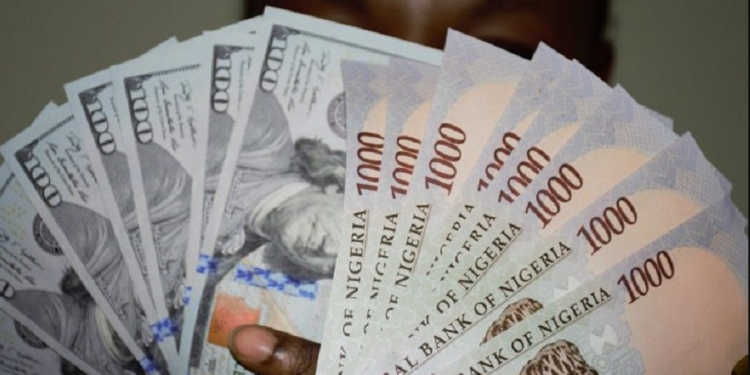The naira moved closer to N1,530 per dollar in the parallel market as trading resumed on Monday, July 21, 2025. This movement comes as Nigeria’s foreign exchange market maintains some stability, boosted by growing confidence among foreign investors and reduced global trade uncertainties. The atmosphere in the global market changed after the United States government decided to pause the reciprocal tariff increases it had earlier announced. This decision helped improve sentiment and encouraged foreign portfolio investors to increase their activities in Nigeria’s forex market.
The US administration has extended the window for countries to renegotiate lower tariffs from the earlier July 8 deadline to August 1. As of now, the United Kingdom, China, and Vietnam have successfully reached revised agreements with the US, while other countries are still in talks with Washington to update their trade terms. This extension is seen as a positive sign for international trade and by extension, for Nigeria’s forex market.
Meanwhile, Nigeria is still working to reduce its dependence on imported fuel. Latest trade data for the first quarter of 2025 shows a decline in fuel imports, indicating progress toward self-sufficiency. However, the country is yet to fully eliminate fuel imports. Despite efforts to revive local refining capacity, imported fuel remains part of Nigeria’s supply chain. Analysts say that with consistent capital inflows and a positive forecast for oil earnings, the naira is likely to get more support, strengthening the foreign exchange market further in the months ahead.
On the oil front, Nigeria’s crude oil production has improved slightly. According to the Nigerian Upstream Petroleum Regulatory Commission, the average daily crude oil production, excluding condensates, rose by 3.6 percent from 1.45 million barrels per day (bpd) in May to 1.51 million bpd in June 2025. This marks the first time in five months that Nigeria is meeting its OPEC production quota, a development attributed to better security and operational effectiveness in the country’s oil-producing regions.
Attention is also on the Monetary Policy Committee (MPC) of the Central Bank of Nigeria (CBN) which is expected to meet this week. The meeting follows the latest inflation report released by the National Bureau of Statistics (NBS), which showed that Nigeria’s headline inflation rate eased to 22.22 percent in June 2025, down from 22.97 percent in May. The modest decline of 0.76 percentage points offers some relief, even though the inflation figure remains high by historical standards. The Consumer Price Index (CPI) rose to 123.4 in June from 121.4 in May. When compared with June 2024, the inflation rate has dropped by 11.97 percentage points from 34.19 percent.
In international markets, the US Dollar Index (DXY) fell to around 98.45 during early European trading on Monday. The dollar’s weakness is linked to investor concerns about President Donald Trump’s tariff policies, the fiscal health of the US, and worries about the independence of the US Federal Reserve. The Financial Times recently reported that President Trump is considering imposing tariffs of between 15 to 20 percent on imports from the European Union. At the same time, US Commerce Secretary Howard Lutnick stated that the US is still open to a trade deal with the EU, but warned that tariffs would automatically apply if no agreement is reached by August 1.
Comments from US Federal Reserve officials are also affecting the dollar’s performance. Federal Reserve Governor Christopher Waller suggested that the Fed could consider cutting interest rates at its July meeting to support the labor market, which appears to be weakening. He emphasized that the Fed does not need to wait until the economic situation worsens before acting on interest rates. Market analysts predict that the Fed is likely to keep rates unchanged at the next meeting, with a 94 percent probability of no change and only a 6 percent chance of a 25 basis-point cut.
In the first quarter of 2025, the US dollar recorded its sharpest quarterly decline since 1973, dropping 10.8 percent after a prolonged period of gains. The slump has been largely driven by uncertainties surrounding President Trump’s trade policies, rising government borrowing, and fiscal decisions that have sparked concerns among investors.
The continuous decline of the dollar has also raised questions about its impact on global markets, especially in emerging economies. According to a 10-year study by UBS, emerging market equities typically gain about 9 percent for every 10 percent drop in the dollar index. This is because a weaker dollar reduces the cost of dollar-denominated debts and boosts the profitability of exports. Sectors such as electronics, non-ferrous metals, transportation, and home appliances, which usually carry large dollar debts, are expected to benefit the most from the current trend.
For Nigeria, a healthier foreign reserves position allows the Central Bank of Nigeria to intervene effectively when needed in the forex market to maintain naira stability. This positions Nigeria to better manage its currency amid fluctuating global economic conditions.
